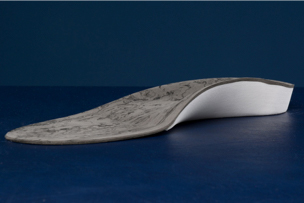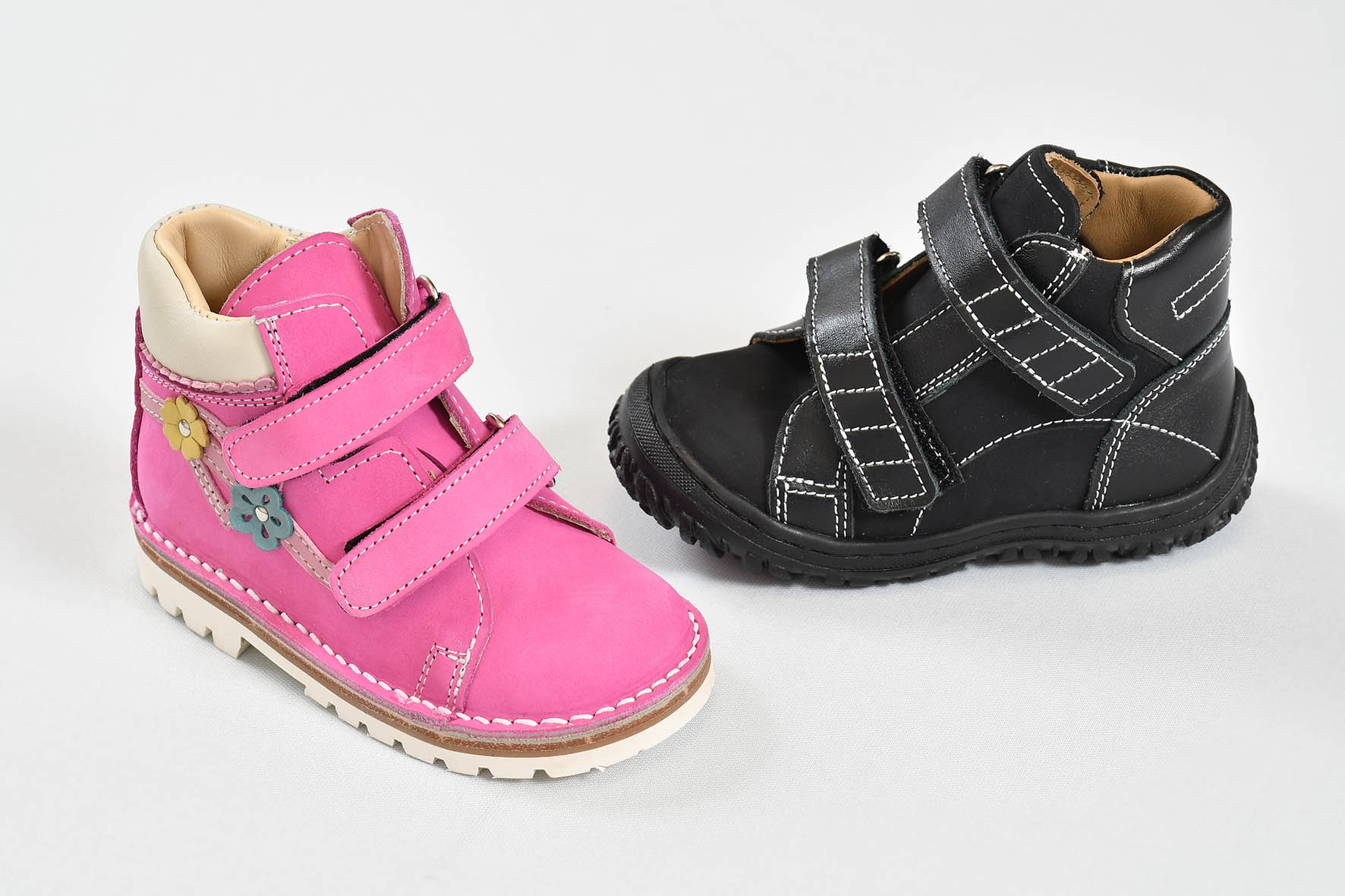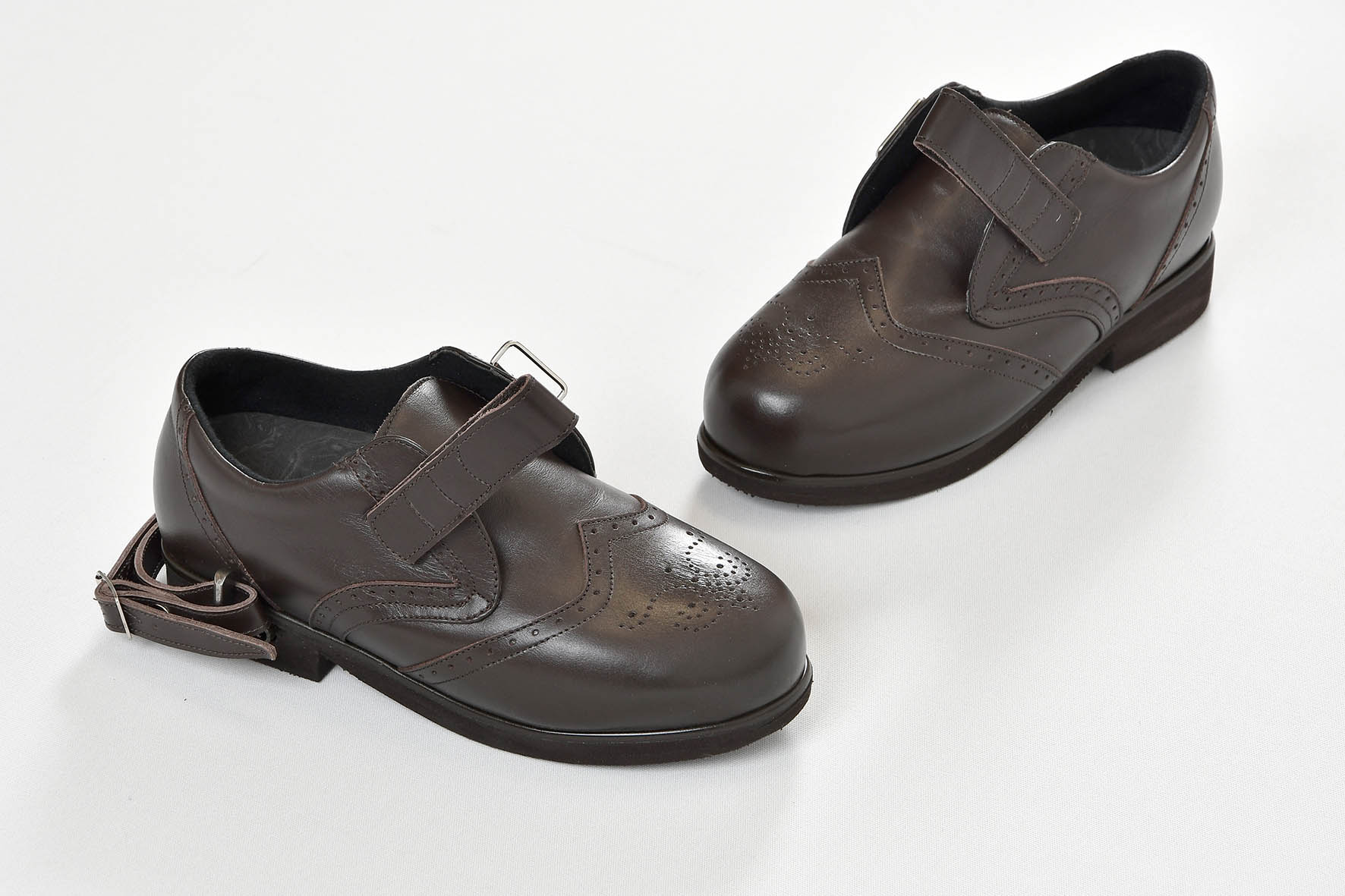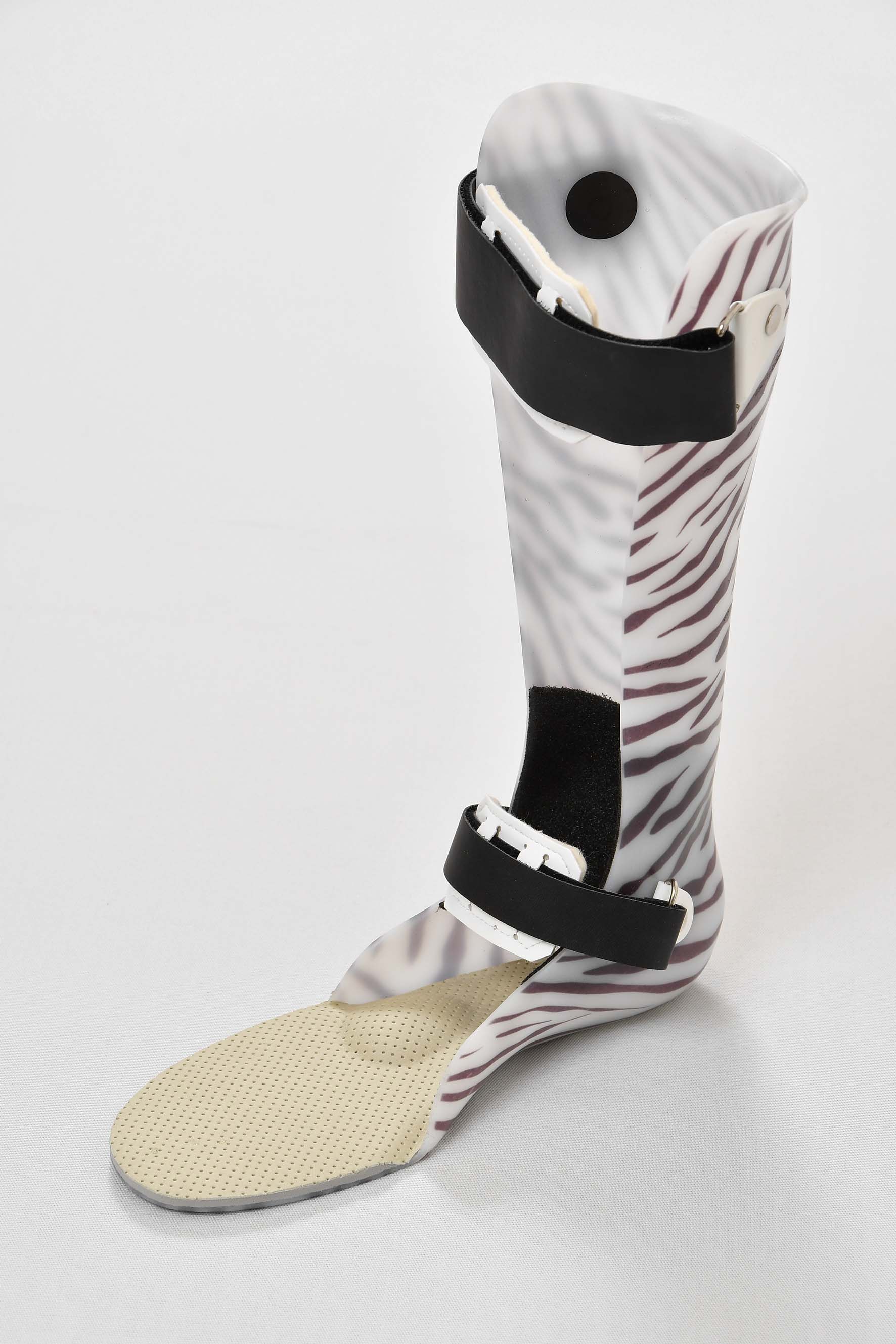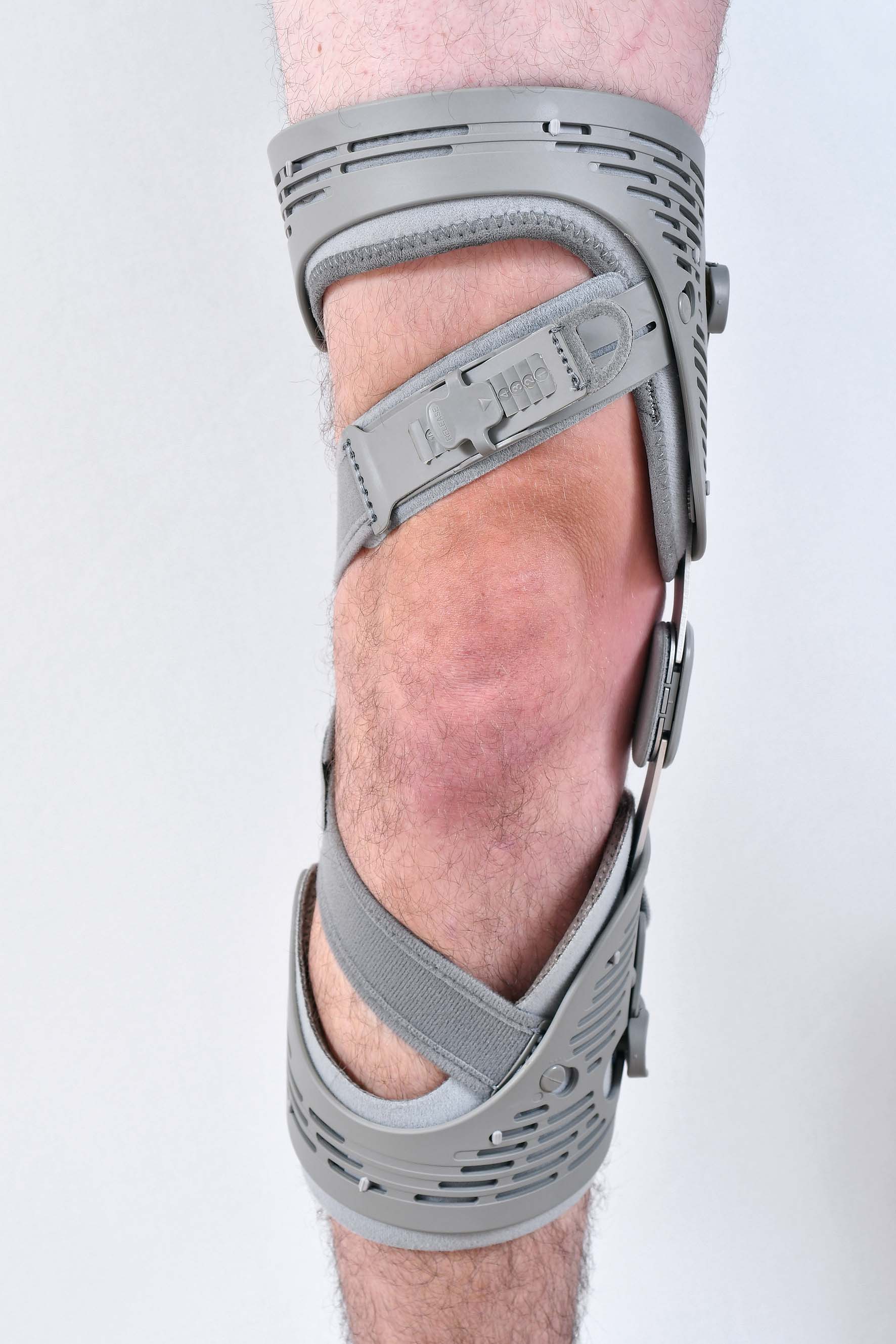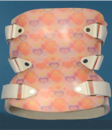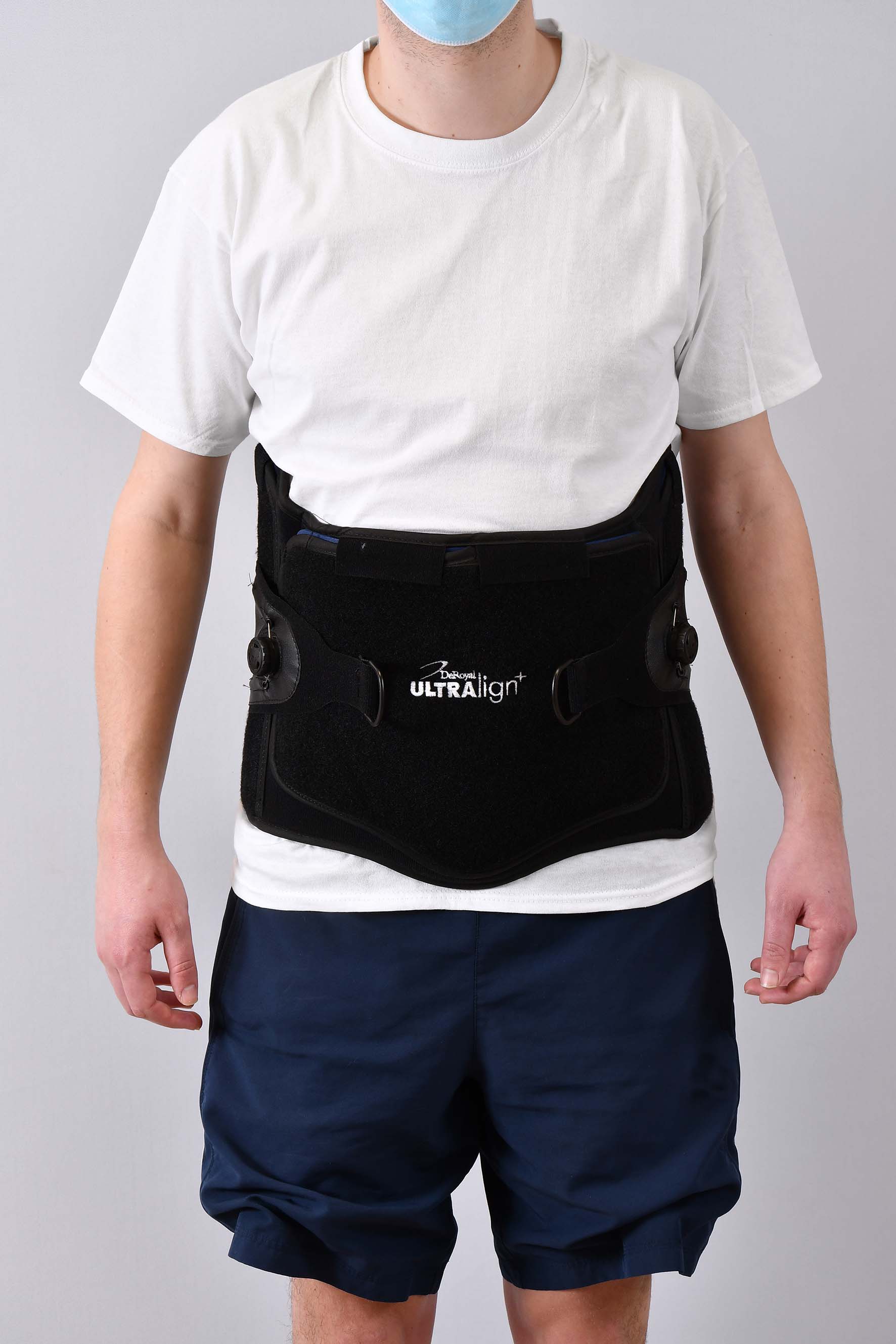Orthotics
The orthotics team assess and provide orthoses – medical devices that fit to the outside of the body. They help people to avoid or recover from injuries, or to live with lifelong conditions.
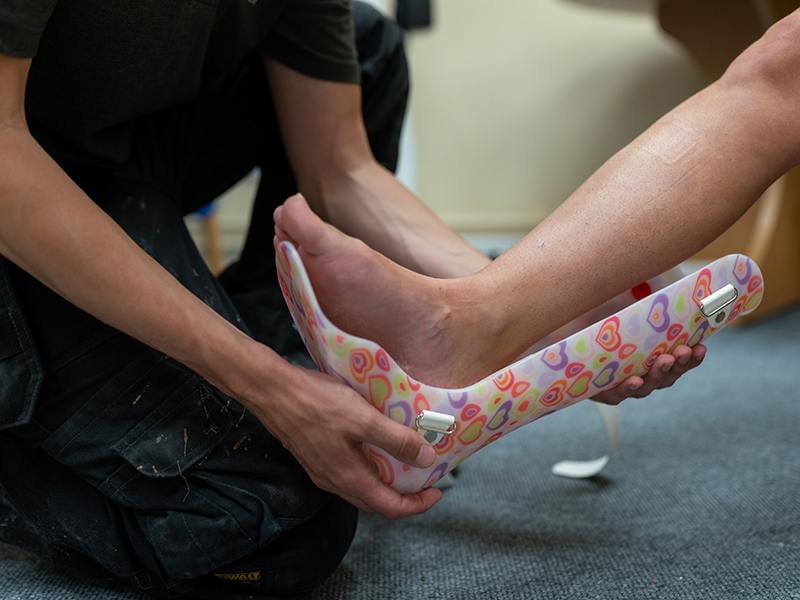
What We Do
Orthotists are Allied Health Care Professionals registered with the Health and Care Professions Council (HCPC). We work in multi-disciplinary teams, caring for children and adults in inpatient and outpatient settings across a wide range of specialties. We offer assessment, advice, design, and supply of orthoses that can influence the movement of one or more joints.
More Information
Orthoses are prescribed for many reasons. They can control the movement of specific joints, provide support, reduce pain, improve function, make walking safer, make activities easier, reduce pressure and skin issues, or delay the progression of deformities. They are sometimes referred to as braces, splints, callipers, or supports. The purpose and design of orthoses often changes over time, to make sure that they are always meeting the patient’s needs. The orthotics service provides many different products, including:
- Insoles
- Orthotic Footwear (also known as orthopaedic footwear)
- Footwear Adaptations
- Ankle Foot Orthoses (AFOs)
- Knee Ankle Foot Orthoses (KAFOs)
- Knee braces
- Spinal braces
- Upper limb orthoses
Insoles:
Insoles can help to improve the position of the foot and leg, and move pressure away from painful or damaged areas. A good foot position can help you balance when walking, and help to spread your body weight evenly across your joints to reduce stress building up in one area. Please refer to our insole advice leaflet.
Orthotic Footwear (made to measure/ Orthopaedic):
Orthotic footwear is provided to patients who are unable to find suitable footwear in shops. This may be because of the shape of their feet, because they need extra support, or because extra space is needed for another orthosis such as an AFO. New designs with extra depth or stretchy materials mean that most people can now find suitable footwear in shops. Your orthotist will be able to advise you on suitable styles. Please refer to our footwear advice leaflet.
Footwear Adaptations:
Footwear can be adapted to allow for different leg lengths, improve stability and foot position, reduce pressure in particular areas, or allow an orthosis such as a calliper to be attached. Only shoes with firm soles can be adapted. Please refer to our footwear adaptations leaflet.
Ankle Foot Orthoses (AFO):
An Ankle Foot Orthosis or AFO surrounds the foot and ankle, keeping the joints in this area more stable and less painful when walking. Please refer to our AFO advice leaflet.
Knee Ankle Foot Orthoses (KAFO):
A Knee Ankle Foot Orthosis or KAFO gives support to the knee, ankle and foot. KAFOs can stop joints in your leg and foot from moving too far in any direction, improving balance and making walking easier, safer, and less painful. Please refer to our KAFO advice leaflet.
Knee braces:
Knee braces help to reduce painful or unstable movements in knees and kneecaps. They can reduce pressure on arthritic joints or injured soft tissues like tendons, protect the knee after surgery or injury, or help to stretch tight or contracted muscles.
Spinal braces:
Spinal braces can be prescribed for protection after surgery or injury to your back, to help with posture, or to slow down the development of spinal curvatures (scoliosis). Information leaflets for scoliosis braces are available on the Scottish National Spine Service website.
Shape Capture for Custom-Made Orthoses:
Orthoses can be off-the-shelf stock products or custom-made. Custom made items will need measurements, casts, drawings, impressions or scans taken of the affected body part at your initial assessment. Your orthotist will decide which device is most appropriate for you during your assessment.
Meet the team
Our team of 14 Orthotists and 5 Orthotic Technicians is based at the Astley Ainslie Hospital in Morningside. We treat ward patients and hold outpatient clinics at several other sites around Lothian. Unfortunately, during the COVID-19 pandemic we have not been able to offer outpatient appointments at all sites.
Meet Jess one of our current Modern Apprentices working for the SMART Service based in Edinburgh as an Orthotics and Prosthetics Technician. Jess provides an overview in the video below of what she does at work and at college to help you decide if this is a career for you.
Useful links
Please refer to the links below for further information on:
- Orthotic service for children and young people:
https://children.nhslothian.scot/departments-services/?_sft_category=orthopaedics
- Orthotic service for the Scottish National Spine Service:
https://services.nhslothian.scot/scottishnationalspineservice/brace/Pages/SNSDSbrace.aspx
- If you have an appointment booked for the Orthotics NearMe Clinic please click the following link:
Video call setup – Attend Anywhere
Patient entitlement:
Insoles
One pair of insoles will be supplied initially; these can be moved between different pairs of shoes. A second pair may be provided based on clinical need; this will be discussed at your review. The patient, or their carer or guardian, is responsible for keeping the insoles in good condition, and for letting us know if they are damaged, uncomfortable, or no longer supportive. See repairs below.
Orthotic Footwear
Patients are normally entitled to one or two pairs of orthotic footwear, based on clinical need. Orthotic footwear is replaced when it can no longer be repaired, or when the orthotist feels it is clinically appropriate. The patient, or their carer or guardian, is responsible for keeping the footwear in good condition, and for letting us know if they are damaged, uncomfortable, or no longer supportive. See repairs below.
Footwear Adaptations
Footwear will only be accepted for adaption if the soles, heels, and upper (the leather or material) are clean and in good condition. The style of the footwear must be suitable for the patient’s feet: well-fitting, stable, and supportive. We cannot adapt slippers or sandals. Some adaptions, like calliper sockets, need footwear with heels of a particular thickness or material. Your orthotist will give you specific advice.
Normally, one shoe or one pair of shoes will be adapted initially. Once the patient and orthotist are confident that the adaption is suitable, the Orthotics Department will adapt a total of three single shoes or three pairs of shoes every 12 months. If the adaption needs to be altered, or if a child outgrows their shoes, we will alter another three shoes or pairs and restart the 12 month clock. The patient, or their carer or guardian, is responsible for keeping the footwear in good condition, and for letting us know if the adaption is damaged, uncomfortable, or no longer appropriate. See repairs below.
Unless there is a clinical need, patients wanting any further shoe adaptions will be need to arrange and pay for these themselves with a cobbler or orthotic contractor.
AFOs, KAFOs, Spinal braces, Knee braces
Patients are entitled to one of each item, with the exception of KAFOs, when there may be a clinical need for two. These items are replaced as required, for example if there is a change in the patient’s needs, a change in body shape, growth in children, or if the device is beyond repair. The patient, or their carer or guardian, is responsible for keeping the orthoses in good condition, and for letting us know if they are damaged, uncomfortable, or no longer supportive. See repairs below.
How to Refer
Inpatients
Referrals to the department are for assessment by an orthotist and are made via TRAK. Information such as; reason for request, expected outcome, diagnosis and any relevant medical history should be included. The referral will be triaged and the patient assessed by a member of the clinical team.
Outpatients
Referrals to the department are for assessment by an orthotist and are made via TRAK. We accept referrals from medical staff, specialist Allied Health Professionals and Nurse Practitioners. The patient can self-refer for review of a current device if they have had an appointment within the last three years. Beyond this time, we may ask for a new referral to ensure that we have the most up-to-date medical information.
GP Referrals
The referral process is on SCI Gateway. Information such as reason for request, expected outcome, diagnosis, and any relevant medical history should be included. All SCI gateway referrals are linked to TRAK and guidance is available on RefHelp
https://apps.nhslothian.scot/refhelp/guidelines/Pages/Orthotics.aspx
Self-Referral Form
This referral form is for people who have previously been seen by the Orthotics service in NHS Lothian within the past three years, and have been advised by their orthotist that they are on the Patient Initiated Follow Up (PIFU) list and can refer themselves back to us.
This form is not for new patients to the Orthotics service.
If you are a new patient to the Orthotics service, you are ineligible for self-referral and should not submit this form.
FAQs
I have been referred to Orthotics, what happens next?
Once we receive your referral, it will be triaged by a clinician and you will be placed on the appropriate waiting list. Appointments may be by telephone call, Attend Anywhere video call, or face to face.
What happens at my appointment?
The orthotist will ask questions about your medical history and examine the affected area. This examination may be hands on, or via a video link. It may include checking joint position, joint movement, muscle powers, posture and walking. After your examination, we will discuss your problem with you, then agree goals and a treatment plan. We may offer advice and exercises to allow you to manage your problem yourself. We may take measurements, plaster casts, scans, drawings, or impressions in soft foam. You may receive your orthosis at the assessment appointment, or you may need to come back another day for a fitting. Some complex custom-made orthoses like KAFOs will need more than one fitting appointment. In some instances, orthoses may be ordered and posted out to your home address.
Where Do We Provide Clinics?
The Orthotics service at the SMART Centre operates 5 days a week. Monday to Thursday from 0830 – 1630hrs and Friday 0830 – 16:00hrs.
We provide clinics at:
- The SMART Centre, Astley Ainslie Hospital
- OPD 6, The Royal Infirmary of Edinburgh
- Outpatients, The Royal Hospital for Children and Young people (RHCYP)
- St John’s Hospital
- East Lothian Community Hospital (ELCH)
We currently do not provide Domiciliary visits.
Do I need to bring anything to the appointment?
If you are attending for a review, please bring your current orthosis with you, even if it doesn’t fit, so that it can be assessed by your orthotist. If you have been referred for a lower limb assessment, it may be useful to bring in a pair of shorts. If you are attending with a child, it may be useful to bring in a favourite toy or books from home to help the child stay calm and reassured.
How long will the appointment take?
Please allow 20-60 minutes depending on the type of appointment.
Who should I contact if my orthosis/brace is causing me problems?
You should contact your orthotist via the Department contact number: 0131 537 9418.
What happens after I have been supplied with my orthosis?
Your orthotist will discuss this with you at the supply appointment. You may require a telephone, video, or face to face review appointment. Or, you may be asked to contact the service yourself if you have any issues.
I can’t make my appointment, what should I do?
As soon as you are aware that you cannot make your appointment, please contact the admin team on 0131 537 9418. They will rearrange the appointment for you or add you back to the waiting list. The earlier you let us know, the longer we have to offer the appointment to somebody else on the waiting list.
I’m going to be late for my appointment, what should I do?
As soon as you know you are going to be late for your appointment, and it is safe to do so, please contact the admin team on 0131 537 9418. The admin team will discuss with your orthotist whether there will be enough time to carry out your appointment. If you are going to be more than 10 minutes late, we may need to rearrange your appointment to another day.
Read our general FAQsRepairs
The patient, or their carer or guardian, is responsible for keeping their orthoses in good condition, and for letting us know if they are damaged, uncomfortable, or no longer supportive. Repairs might include re-heeling footwear, or replacing Velcro straps. This service is free of charge for items prescribed and fitted by our service. If you have footwear adaptions, we can repair the adaptions but not the footwear that you have supplied.
Some repairs can be carried out at the SMART centre while the patient waits. You must contact the Orthotics Department in advance to arrange a specific date and time for this service. Items needing more complex repairs will need to be dropped off and collected another day. Repairs should be done on a regular basis to prolong the life of the orthosis and to allow the orthotist to check that they are still suitable.
If you would like advice, a repair, or a review, please contact the Orthotics Department on 0131 537 9418.
Contact
The Orthotics Service can be contacted on:
0131 537 9418.

